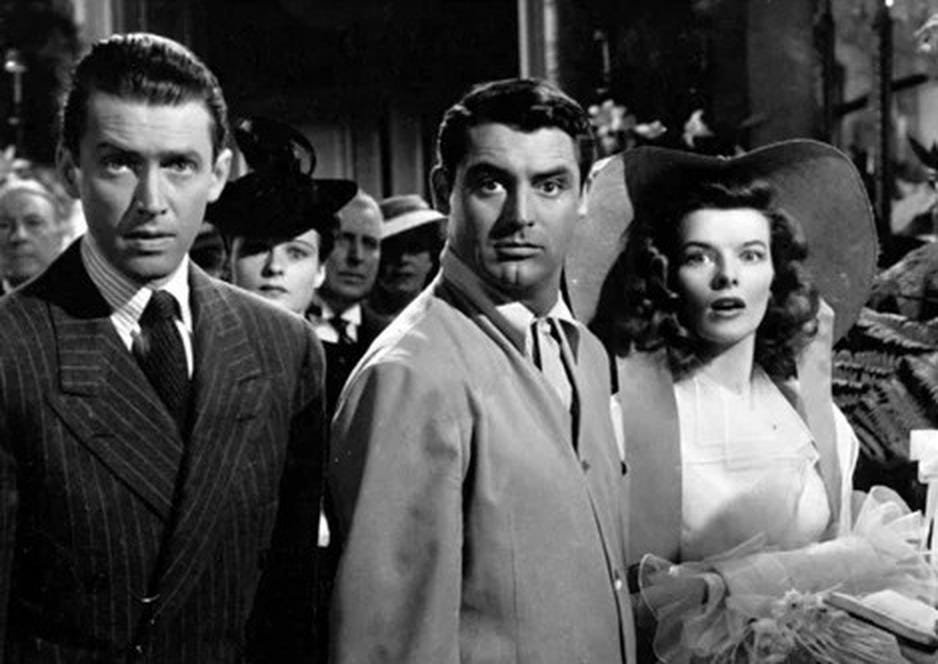Saving grace
and a recipe for summer pea soup with marjoram

“The time to make up your mind about people is never.”
Tracy Lord, in The Philadelphia Story
Have you seen the movie The Philadelphia Story? It’s a 1940 classic that brings together some of old Hollywood’s biggest names in a fast-talking romantic comedy that makes today’s so-called standard-bearers, such as You’ve Got Mail, pale by comparison.
In a pivotal scene, Tracy Lord, proud and polished and used to seeing the world in black and white, starts letting go of her fixed ideas about right and wrong, and about how people should be. Her line about never making up your mind about people is her way of admitting she might have been too sure of things before.
She doesn’t have everything figured out anymore. That’s the beginning of her becoming more human and more open.
Boy, can I relate.
judge·ment
/ˈjəjmənt/
noun
the ability to make considered decisions or come to sensible conclusions.
When we think about judgement, it usually has a negative connotation, doesn’t it? Something is lacking, not up to our standards, or unexpected in an unpleasant way. Judgment in its negative context allows us to feel moral superiority, the sense that we are perceptive, righteous and, well, simply right.
Yet the definition of judgment includes synonyms like acumen, shrewdness, and common sense — all admirable qualities, words that suggest a thoughtful and measured assessment of a person or situation, the ability to use discernment in our thinking.
See the light
The word discernment comes from the Latin verb discernere, composed of two parts:
dis‑, meaning “apart,” from Latin
cernere, meaning “to separate,” “to perceive,” or “to sift,” from Latin
At its root, discernment is the ability to see clearly by distinguishing one thing from another — not just noticing surface details, but making careful, thoughtful distinctions. It suggests a kind of deep perception, insight, or wisdom in judgment, what really matters beneath the noise.
The concept of discernment is a through line in many religious and spiritual traditions, whether it refers to the ability to sense or recognize God’s will, spiritual truth, or moral direction.
But in our day to day lives, we’re wrestling with smaller judgements, moments of discernment that don’t feel so weighty. Yet their impact can be outsized. The problem is that what we see is so very often only a fragment of the whole.
It’s something I’ve noticed in myself. I’ve often thought of myself as a good judge of character, because my instincts are quick and intuitive. And to be fair, that intuition has usually served me well. But I’ve also come to see that certainty can be overrated—especially when it hardens into something fixed and unyielding.
Intuition’s best friend can be curiosity, especially about the people we love and have known for decades. Our desire to truly understand how they have evolved and grown—just as surely as we have—is the gift of giving people room to change.
Oh, snap
We’re conditioned to make snap judgments. And the reality is we make quick judgements all the time—not just about people of course, but about something we read, a movie we see, the news we hear, a politician, a best friend, a boss, a lover.
Striving to judge less might be one of the most worthwhile things we can do—not because it’s easy or even fully possible, but because it asks us to stay open. Open to being wrong, to being surprised, to recognizing how much we don’t yet see. That kind of openness feels closer to wisdom than certainty ever does.
And maybe that old 1940 classic is worth revisiting for more than the witty script, fabulous clothes and Cary Grant. Tracy Lord’s arc in The Philadelphia Story offers a few sharp, timeless lessons — especially about pride, perception, and what it means to be human.
Tracy learns that letting go of perfection… understanding that people are complicated… that vulnerability is strength, that judgements limit understanding… are much more rewarding. Her moments of humility open the door to real connection. As she learns to observe without condemning, she becomes more empathetic — and more tender.
Most of all, she learns that grace matters.
Tracy Lord had it right. People are not finished. Not at 20, 40, or 75. Maybe the time to make up our minds about them, about each other, and most of all, about ourselves, is never.
If you liked this post, let me know by clicking the ❤️ button. It helps spread the word about Delicious Bits and brings me joy. Thank you, dear readers and eaters!
Summer pea soup with marjoram
Is there anything more delicious than a simple bowl of sweet pea soup? The variations are infinite, needing only imagination and whatever the garden or cupboard will yield. Pick a herb; parsley for freshness, basil for bite, mint for green coolness. Choose a base: something from the allium family; liquid as simple as water or as complex as rich chicken stock. Fresh peas are best; in a pinch or in the dead of winter, frozen nearly as good. This is where your discernment and judgement come in really handy.
The pleasure of leisurely shelling peas on a warm summer afternoon is almost as satisfying as sipping the results. Served warm or chilled, sweet pea soup is what summer is all about.
Ingredients
1 leek, trimmed and thinly sliced (about 1 cup)
⅛ lb pancetta, minced into very small pieces
1 shallot, minced
2 tbsp unsalted butter
2-3 sprigs fresh marjoram or 1 tablespoon dried
4 cups chicken broth
4 cups fresh shucked peas (or 4 c frozen, thawed)
Salt and white pepper (optional) to taste
¼ cup heavy cream
Melt butter over low heat and add leek, pancetta and shallot. Saute, stirring occasionally, until vegetables are very soft, about 10 minutes. Do not brown.
Add the majoram and the broth, turn heat to medium and bring to a simmer. Add peas and simmer for 6-8 minutes. Turn heat off and let soup cool slightly. Remove marjoram sprigs.
In a blender or food processor, puree soup in batches. Strain to creatre a velvety finish.
Put the soup in a pot and add the heavy cream, whisking lightly to fully incorporate. Season with salt and white pepper to taste. Serve with crème fraiche, if desired. The soup can be served warm, at room temperure or slightly chilled.




Ahhh, I relate to this. Thank you for this lovely post.
I wonder if it's a particular affliction of the young - to judge others, yourself. In a desperate bid to find your place in the world, you cling to how things 'should' be. How people 'should' be. How you 'should' be.
I am definitely on the same path as Tracy Lord as I get older. The realization that nothing really is certain and set. We all change and grow. Thought provoking as ever Elizabeth! (I've also never seen the film but love Katherine Hepburn, so will seek it out!)
I always forget the magic in pairing mint with peas…haven’t tried this in soup yet